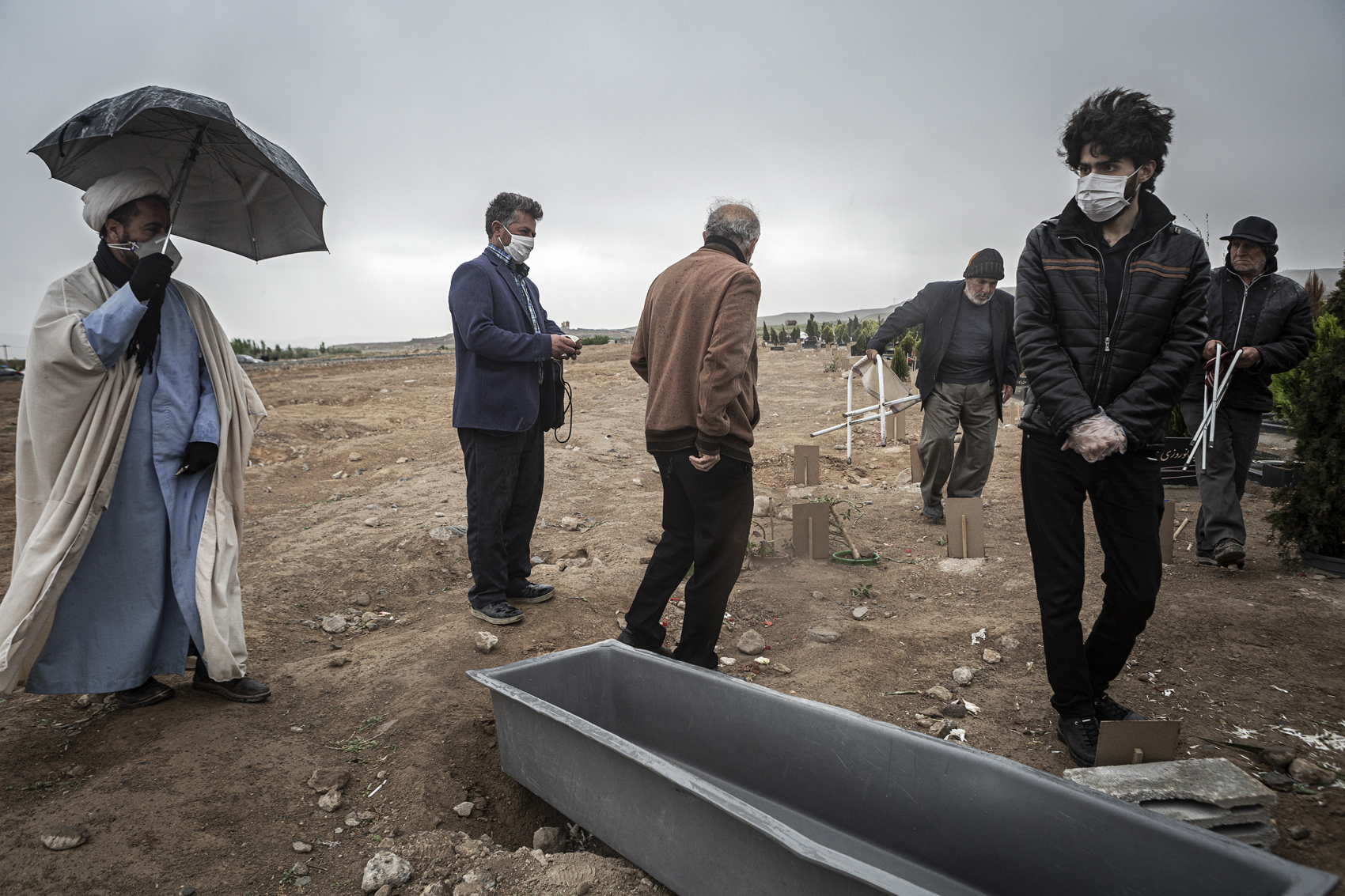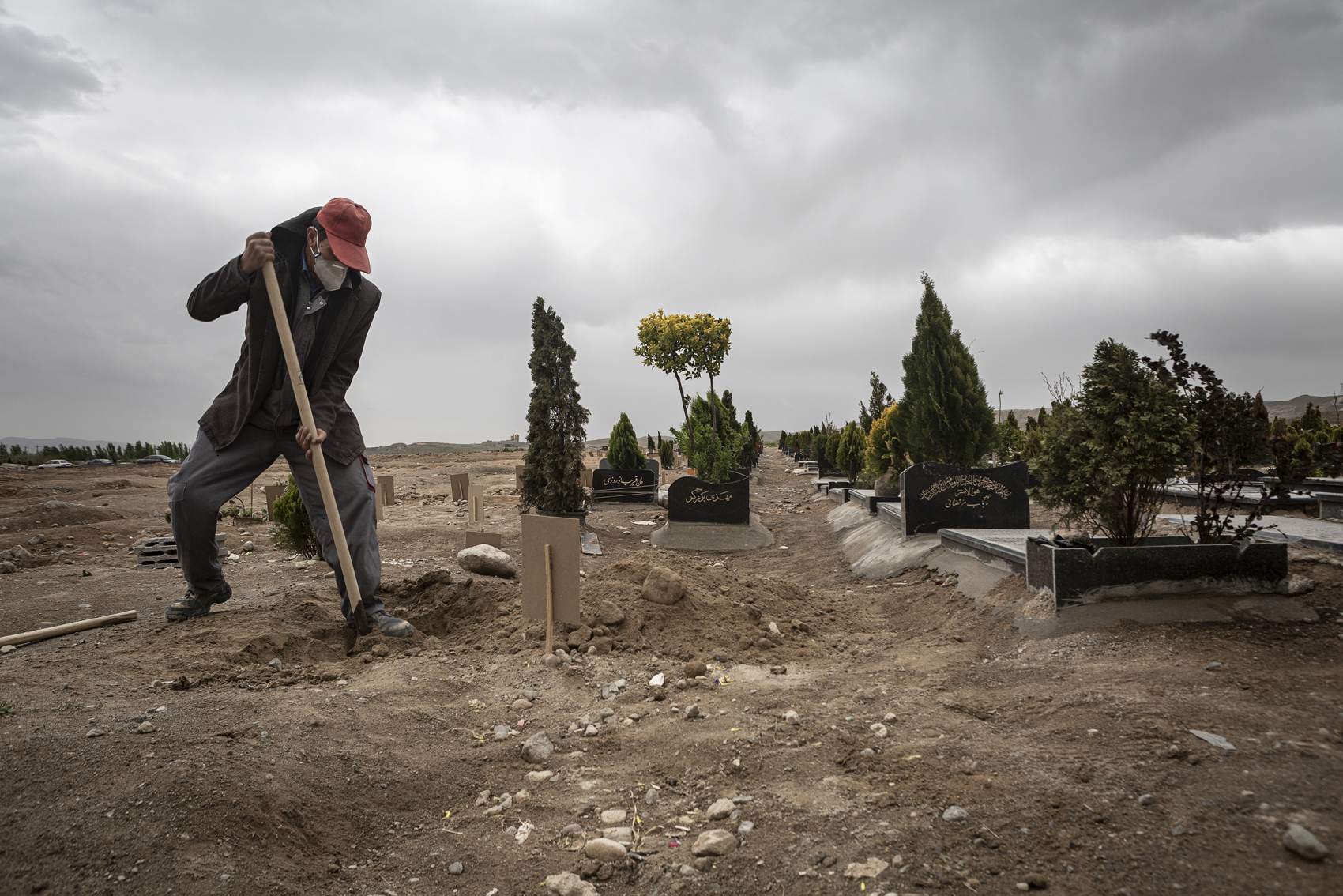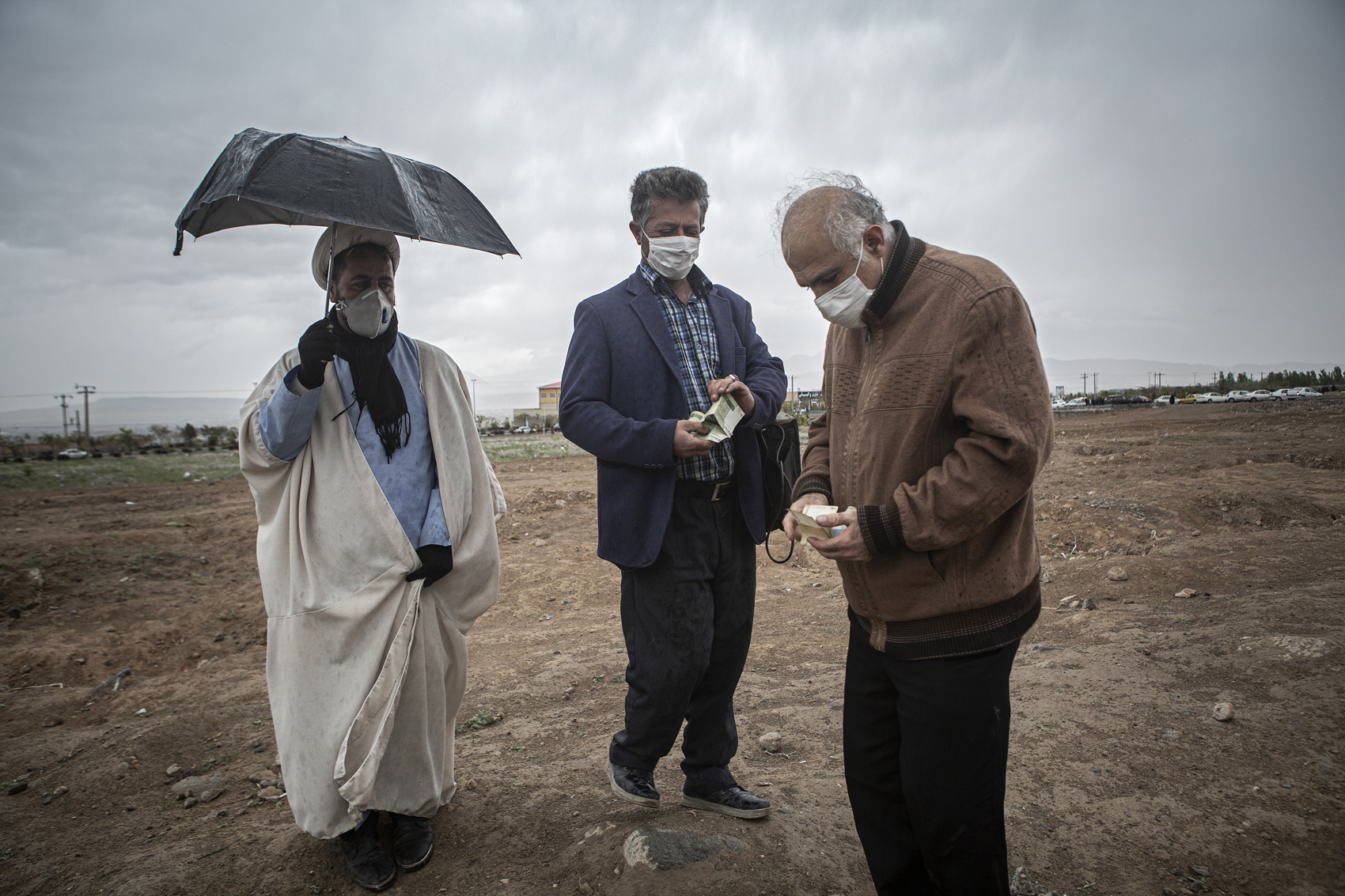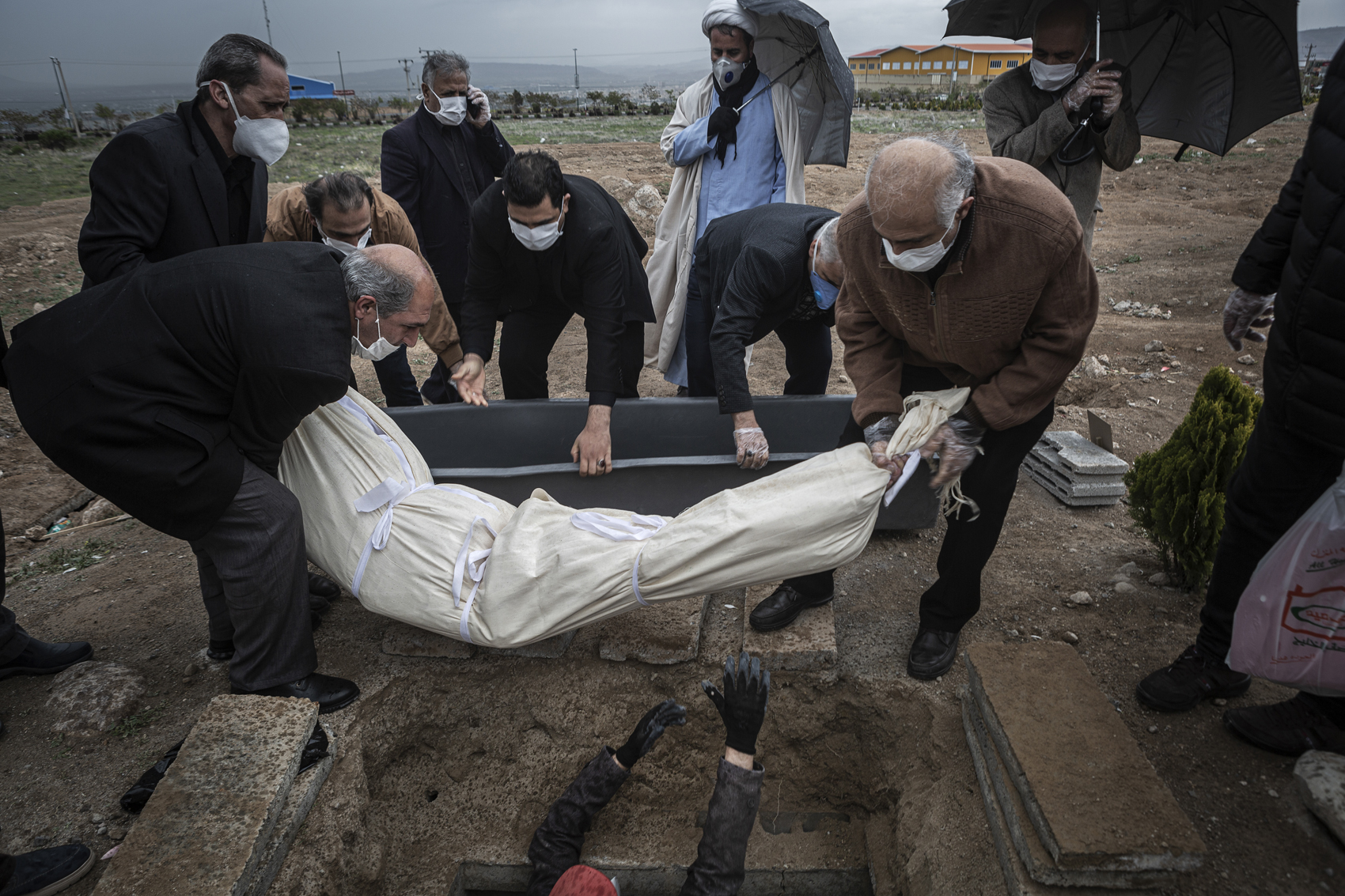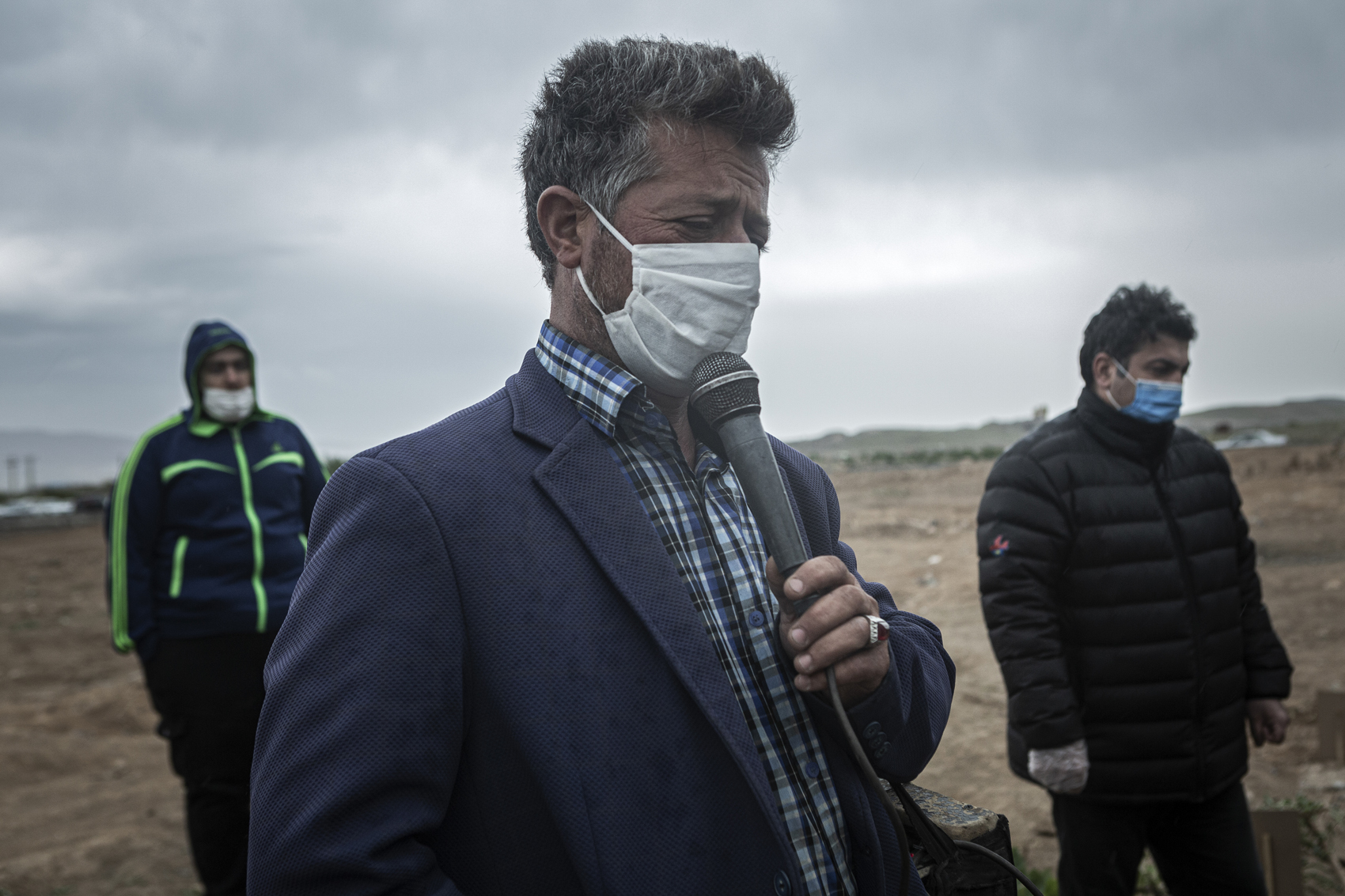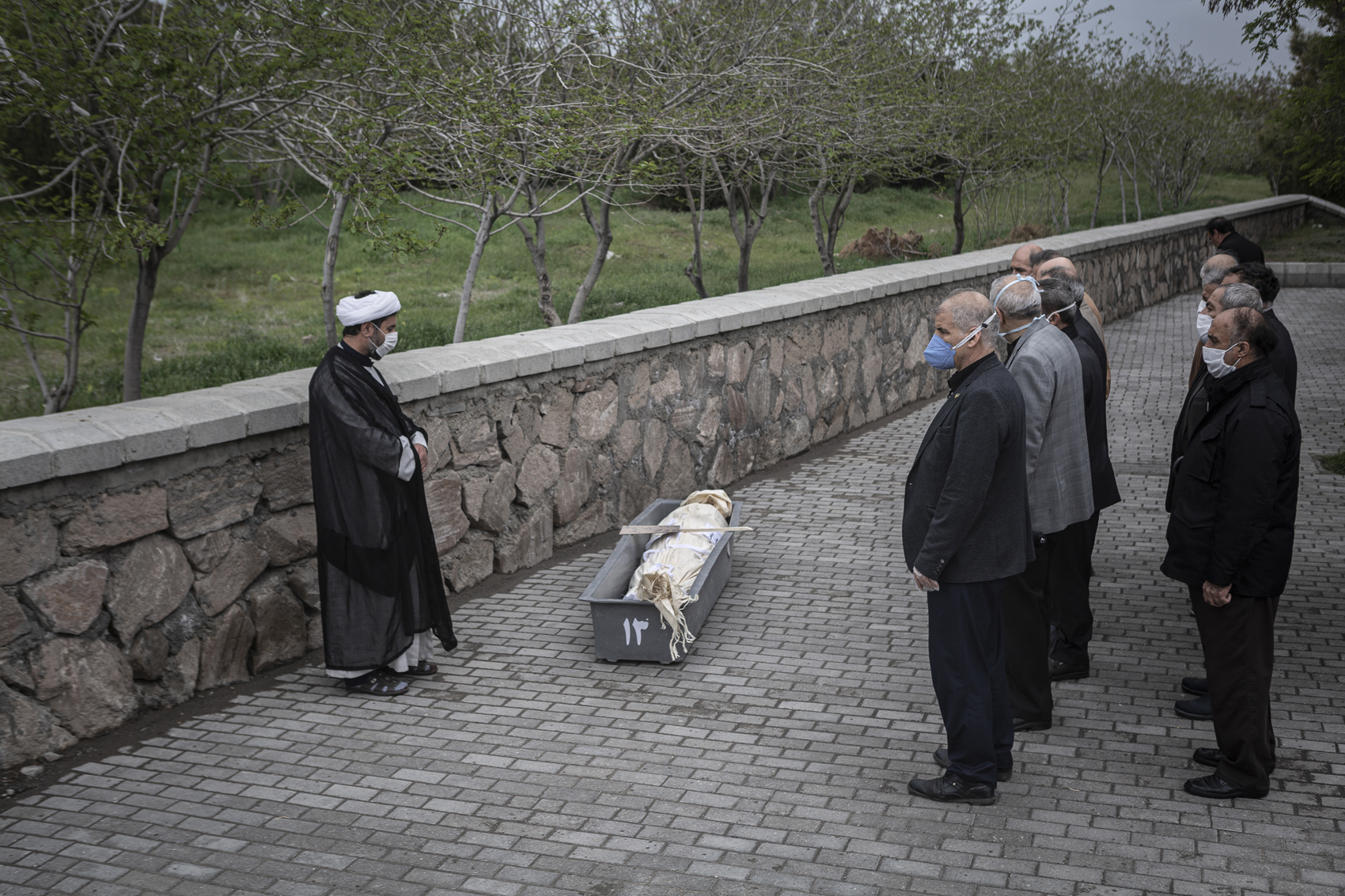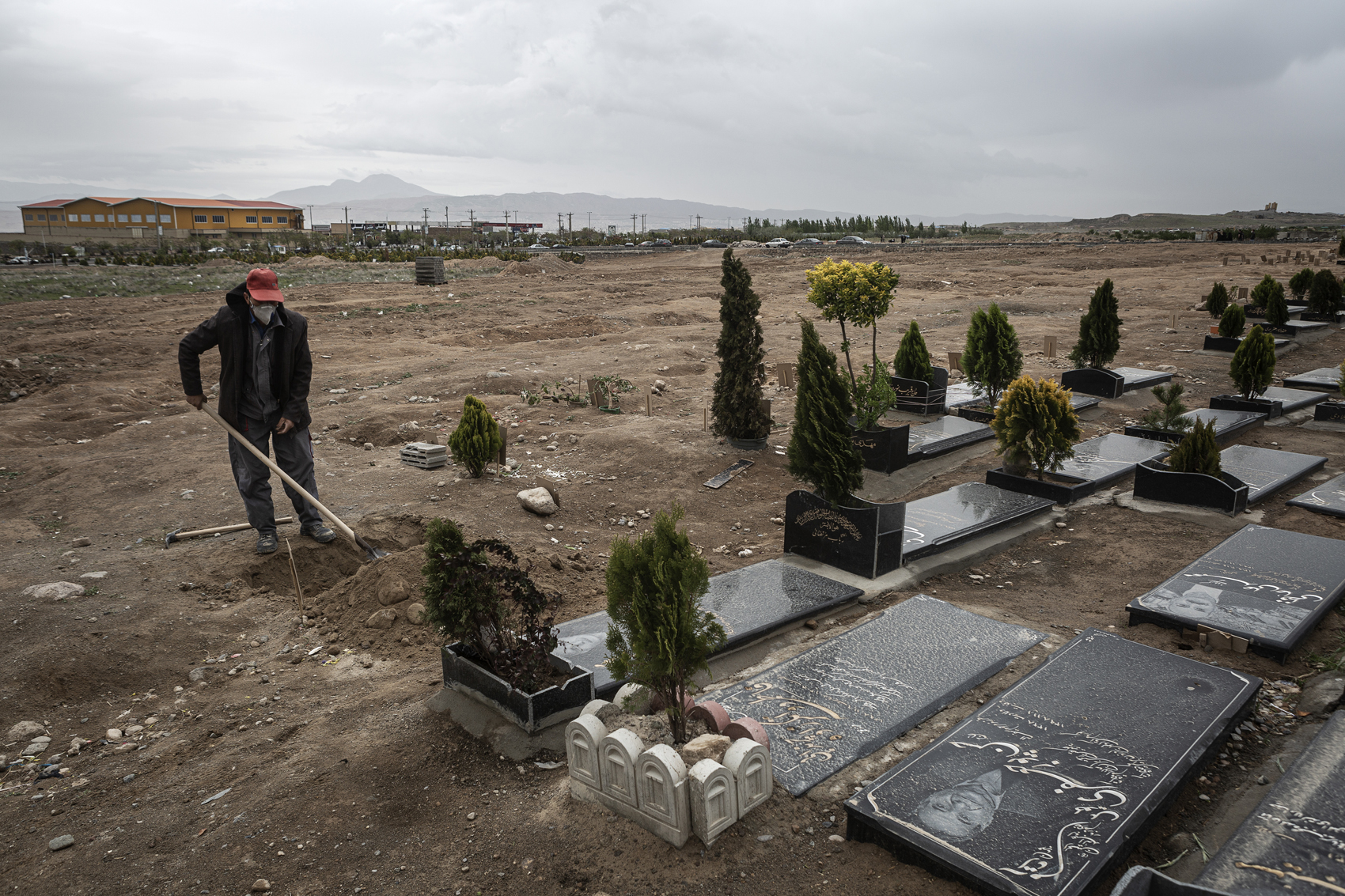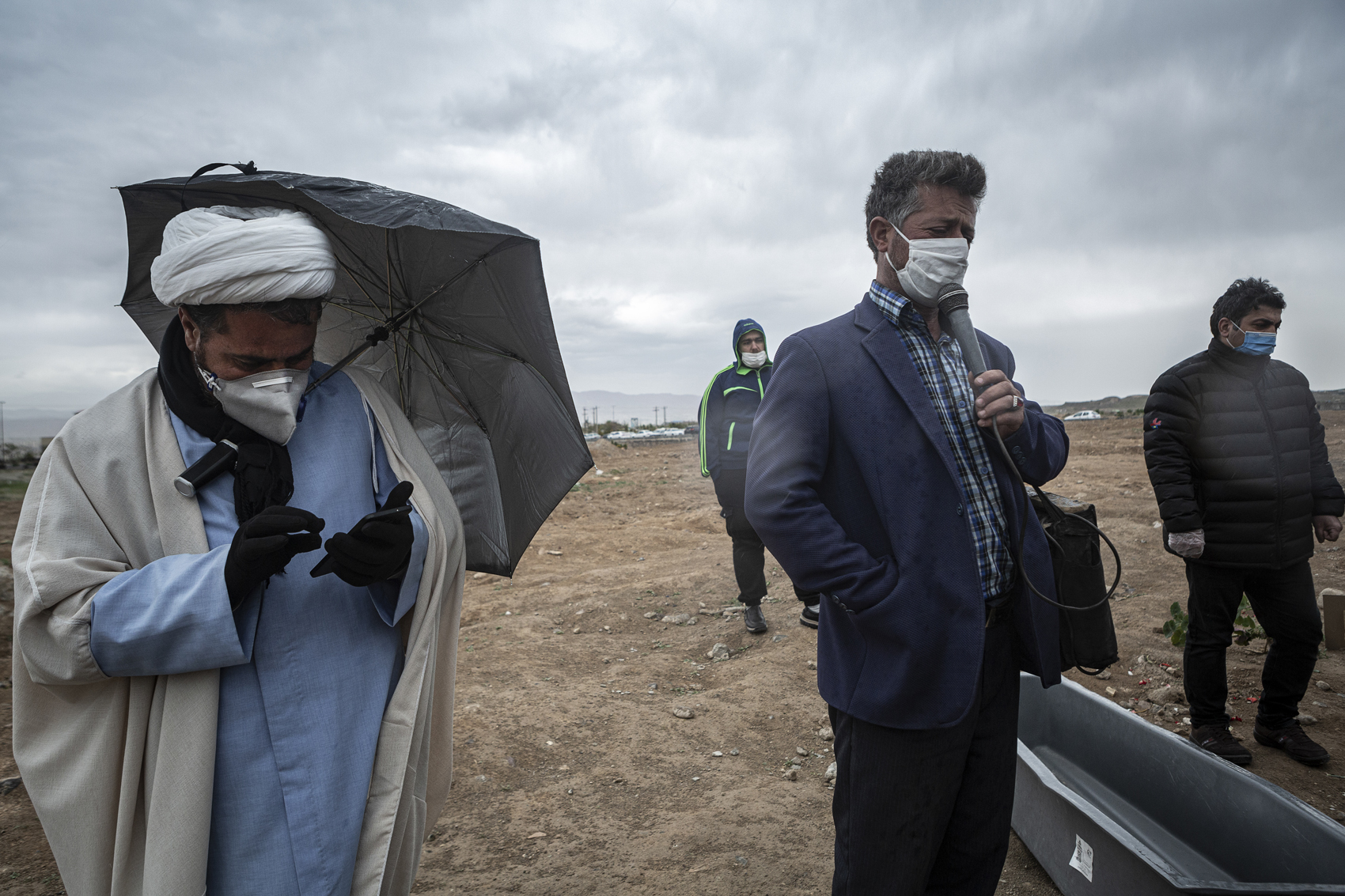The Cemetery Workers – (Extended)
Project Location | Middle East, Iran, Tabriz
Production Date | 2019-05-29
- (2020 Grant recipients of Pulitzer Center)
As a result of the coronavirus pandemic, an average of 25 bodies are buried every day in the graveyard of Tabriz. Considering the total mortality rate during the period of COVID-19, this number is sure to increase. The government pays the cemetery workers and staff but due to Iran’s poor economic conditions, and the effect of economic sanctions, the workers are facing serious economic hardship. Some of them rely greatly on the small tips given to them by customers. After the outbreak of COVID-19 in Iran, and despite the declared nationwide quarantine, many individuals had to continue working due to their poor economic conditions. So too did the workers of the graveyard of Tabriz. They have to work to maintain their life, and must avoid losing their jobs.
Because of the manner of their work, and the fear of losing their jobs, the cemetery workers are forced to continue working under any circumstance. Wrongful government policies, and International sanctions have caused financial and psychological pressure on specific vulnerable groups of society, including the cemetery workers, during the days of quarantine in Iran.


